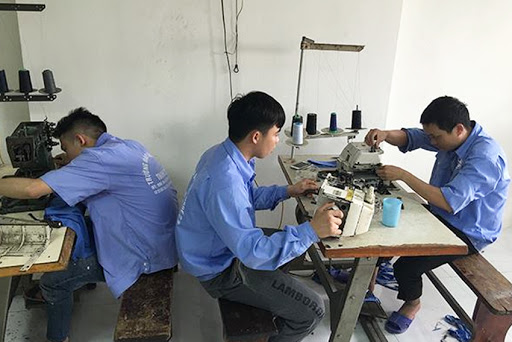Introduction to the Intermediate Level of Sewing Equipment Repair in Vietnam
Circular 47/2018/TT-BLDTBXH issued by the Ministry of Labor, War Invalids, and Social Affairs of Vietnam stipulates the minimum knowledge volume and competency requirements that learners must achieve upon graduation from intermediate and college levels in mechanical engineering fields, effective from February 10, 2019.
 />
/>
Introduction to the Intermediate Level of Sewing Equipment Repair in Vietnam - Illustration
According to the regulations on the minimum knowledge volume and competency requirements that learners in Vietnam must achieve after graduating from the intermediate level and college level in the field of sewing equipment repair, issued together with Circular 47/2018/TT-BLDTBXH, sewing equipment repair at the intermediate level is a profession in which the practitioner performs maintenance and repair of equipment in sewing factories to ensure that the technological equipment system is always in optimal working condition. This contributes to ensuring productivity, product quality, cost-saving in production, and promoting sustainable development for sewing manufacturing enterprises, fulfilling the requirements of level 4 in Vietnam's National Qualifications Framework.
Sewing Equipment Repair trainees work independently and in groups with tasks such as: directly adjusting and repairing equipment on production lines; researching, designing and manufacturing types of jigs for production; installing equipment to fit the layout and production requirements; trading, supplying spare parts and equipment for the sewing industry; managing and circulating equipment when production orders change; updating equipment records...
For the profession of Sewing Equipment Repair, the primary tools and equipment include: various types of screwdrivers, cold hammers, pliers, wrenches, hex keys, metal cutting shears, measuring tools, grinders, drills, soldering irons, computers, maintenance management software, and other specialized equipment.
The primary tasks of the profession are mainly carried out in textile companies, equipment and spare parts shops, sewing equipment manufacturing and assembly plants, and foreign equipment manufacturers. The working environment and conditions are favorable, ensuring safety and health. This is a not-too-heavy profession but it is time-sensitive, requiring agility, flexibility, quality, and work efficiency in the context of constantly evolving and developing science and technology.
Minimum knowledge volume: 1,500 hours (equivalent to 54 credits).
For detailed information, see Circular 47/2018/TT-BLDTBXH, issued on December 28, 2018.
Le Vy
- Number of deputy directors of departments in Vietnam in accordance with Decree 45/2025/ND-CP
- Cases ineligible for pardon in Vietnam in 2025
- Decree 50/2025 amending Decree 151/2017 on the management of public assets in Vietnam
- Circular 07/2025 amending Circular 02/2022 on the Law on Environmental Protection in Vietnam
- Adjustment to the organizational structure of the Ministry of Health of Vietnam: Certain agencies are no longer listed in the organizational structure
- Vietnam aims to welcome 22-23 million international tourists in Vietnam in 2025
-

- Number of deputy directors of departments in Vietnam ...
- 15:04, 05/03/2025
-

- Cases ineligible for pardon in Vietnam in 2025
- 14:43, 05/03/2025
-

- Decree 50/2025 amending Decree 151/2017 on the ...
- 12:00, 05/03/2025
-

- Circular 07/2025 amending Circular 02/2022 on ...
- 11:30, 05/03/2025
-

- Adjustment to the organizational structure of ...
- 10:34, 05/03/2025
-

- Notable new policies of Vietnam effective as of ...
- 16:26, 11/04/2025
-
.Medium.png)
- Notable documents of Vietnam in the previous week ...
- 16:21, 11/04/2025
-
.Medium.png)
- Notable documents of Vietnam in the previous week ...
- 16:11, 02/04/2025
-
.Medium.png)
- Notable new policies of Vietnam to be effective ...
- 16:04, 02/04/2025
-
.Medium.png)
- Notable new policies of Vietnam effective from ...
- 14:51, 21/03/2025
 Article table of contents
Article table of contents
